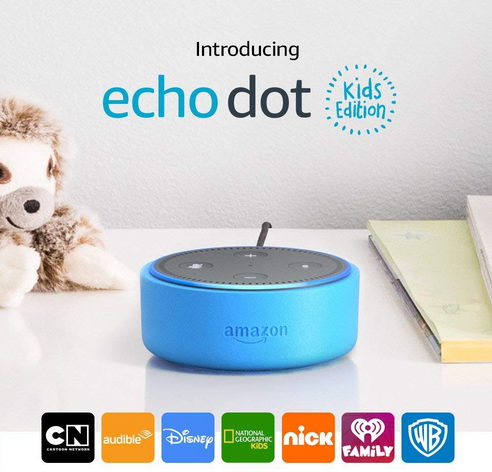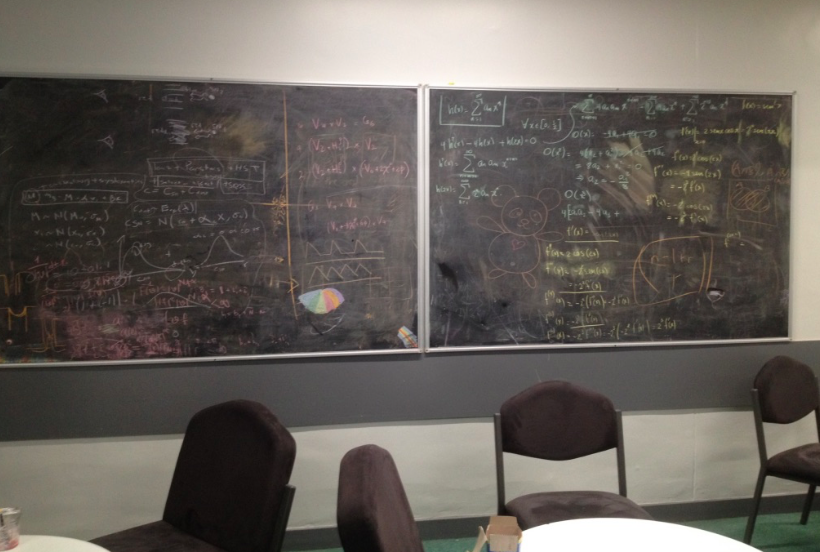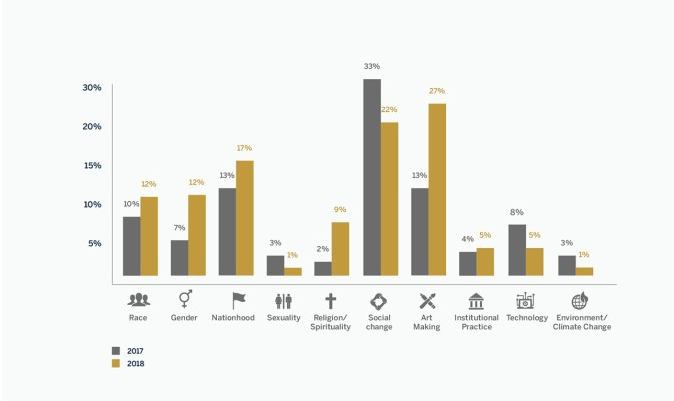
I thought that ‘executive summary’ nursery rhymes, for time-pressed parents to read to their children, were bad enough. I think this might be worse. Not only are we removing human interaction, we are allowing Big Tech to listen in on our children.


I thought that ‘executive summary’ nursery rhymes, for time-pressed parents to read to their children, were bad enough. I think this might be worse. Not only are we removing human interaction, we are allowing Big Tech to listen in on our children.

Something I’ve written for the Future Universites Thought Book in Australia. Free e-copies and hard copies can be found on this link.
What is the purpose of a university? What should they seek to encourage? You might think that universities, of all places, might be thinking more about this, but alas no. This exam question has largely fallen off the curricula. Neither is much study time being given to whom an Australian university should serve, how they might be funded or what should be taught and why.
There was a time when a university was a place where people were taught to think. They were communities of open debate. They were places where people went to be educated into the ways of the world using grammar, rhetoric and logic. They were spaces where people went to explore and understand things, not least themselves. There were no ‘safe spaces’ or no-platform policies.
Universities nowadays are becoming where you go to further your career and earn more money. Following the Dawkins reforms in the late 1980s, students are now customers with all the biases and baggage this word entails. With notable exceptions, universities have become brands that churn out qualifications much in the same way that fast food establishments flip burgers, although it’s sometimes difficult to tell which might be more damaging over the longer term.
Time to upgrade the system
A thriving university sector is essential in a hyper-competitive world where problems are becoming trickier and constraints are becoming stickier. But Australia is still stuck on a system created more than a century ago to produce muscle or memory workers for business. These are people taught physical dexterity, precision and endurance or taught to process and apply information according to sets of rules.
This output has suited us up to now, but looking ahead it seems that developments in machine learning and artificial intelligence mean that we are teaching a generation to compete head on with computers and it’s a no-brainer who will win if the contest is about muscle, precision, memory, data processing or logic. With the exception of teaching people how to create or collaborate with these machines, we should be teaching precisely the opposite, which is teaching people to think in ways that computers can’t.
Ultimately, there’s not a lot that machines can’t do if we allow them, but there could be a few domains that will remain the preserve of primitive carbon-based bipeds such as ourselves. The first is creativity. We should be teaching students how to think more imaginatively, whether the application be art, science or the art and science of innovation. We need tall buildings that don’t fall down, but also ones that make the human heart soar.
Similarly, logical machines, no matter how smart, will continue to struggle with the faults and foibles of human beings, which, to my mind, means it matters that we teach people about other people and what motivates them.
Machines can be alluring, but I can’t see them ever being inspiring, so teaching leadership should be paramount, whatever the discipline you are attempting to impart. One of the issues I hear about regularly is that of students entering the workforce that are technically brilliant, but incapable of managing themselves let alone anyone else. Recognising and rewarding EQ alongside IQ might be a good way to not only create a functioning civil society and workforce, but also a way of creating the next generation of effective leaders. But don’t suppose for a moment that this can be achieved online. We already have a problem with asocial students virtually incapable of human interaction. Let’s not make this worse by deleting the human interface.
A further thing that’s missing from the current system is ethics.
Historically, many universities were linked to the church and the moral component was bedrock. Nowadays, the moral component of a degree is akin to a slippery slope of scree sliding down a hillside. Indeed, it’s quite possible to use your head to pass through university with flying colours while remaining, at heart, an ego-centric, narcissistic, psychopath.
One thing I stumbled upon recently was the 4Cs (Critical thinking, Communication, Collaboration, Creativity). I propose that we build upon this list and set off toward the distant horizon of 2040 on the 7 Cs; Critical thinking, Creativity, Collaboration, Communication, Curiosity, Character and Compassion.
The first 4Cs are self-explanatory. We need people to think critically and creatively about the world’s problems and communicate and collaborate across communities to come up with solutions. But the last 3Cs are especially important.
The aim of education generally, and of universities in particular, should be to instil a lifelong love of learning and this is becoming especially vital in a world where new knowledge is being created at an exponential rate. But how can we expect people to continually re-learn things without first instilling a sense of Curiosity about how things work or might be changed for the better?
Character is important for two reasons. First, as machines become more adept at doing the things that were once thought the preserve of humans, the value of emotionally-based work should come to the fore. Most jobs feature people at some level and if you are trying to persuade people to do something you’re more likely to be successful if you are liked. An attractive personality cannot be taught, but it can be encouraged. Moral character is equally important. We don’t just want smart graduates, we want ethically grounded graduates too.
The final C, Compassion, is linked to moral character. Compassion is the resource the world is running out of faster than any other.
Without compassion the world is an ugly place. Universities have long focussed on IQ. Indeed, it’s hard to get into a university without it. But at the risk of repeating myself, EQ might prove more valuable over the longer term, especially if IQ becomes the preserve of artificially intelligent machines.
It’s hard to predict the future, and foolish to try in many instances, but I believe that imparting individuals with a better understanding of the human operating system would make them better prepared for whatever 2040 throws at them.
—-
As I’ve said many times before, trends tend to bend. Counter-forces and negative feedback loops tend to build up and send things off in a direction that’s opposite to the one most people expect. Case in point – too little information. Everyone, more or less, knows about Too Much Information (TMI), but much of this ‘information’ is shallow, trivial and meaningless. (See ‘Filter Failure’ – Sharkey 2009). But, more importantly, because people are starting to feel that nothing that’s digital is ever totally secure they’re starting to get very cautious and not to write things down. The result might well be that very important documentation is ceasing to exist. Think about political decisions taken during periods of crisis. Historically you’d have diaries, minutes of meetings and so on. But what if we don’t? What if the real issue isn’t Too Much Information (TMI) but Too Little Information (TLI)?
An idea proposed by the Canadian historian Professor Margaret MacMillan.
Listen here (around 20 minutes 40 seconds in).

Seen this morning….
If you aren’t nervous enough already, here’s something else to worry about. In December 1929, at the time of the Great American stock market crash, America suddenly fell victim to a pandemic. The disease, called psittacosis, had been known about since 1892, but such was the state of that fear that gripped the nation in 1929 that it’s existence and threat was blown out of all proportion.
On 6 January 1930 a doctor that examined one of the first cases sent a telegram to the US Public Health Service in Washington DC that read; “Can you please supply parrot fever serum for our disposal immediately.” Further panic about contact with diseased birds then ensued. One US Admiral even ordered sailors to toss their pet parrots overboard, while the New York Times ran a front page that read: “Parrot Fever Kills 2 in this country.” There were 169 confirmed cases of parrot fever in the US and 33 Americans eventually died.
So was America in 1929 a dangerous place or just a gullible one? Parrot fever exists today in the US (and elsewhere) and infects between 100 and 200 Americans every year. The only difference is that over-exposure to newspaper headlines now spreads anxiety rather than parrot fever.
Oh, my goodness. I’ve started something looking at what AI can’t do and it’s turning into a real can of worms. I thought it might be simple: AI is fairly useless at creativity, not great with empathy (AI isn’t a “people person”) and maybe throw in common sense and perhaps leadership. But everything I dig into throws up more questions than it answers and everything is more or less contestable.

I’m not sure if this is a weak signal, but it’s interesting. An analysis of the Sotheby’s art prize has found that the theme of introspection, especially spiritually, is trending upwards, while sex is trending down. The data set is small, so beware of jumping to premature conclusions, but worth watching nevertheless.
The full article is worth a read.